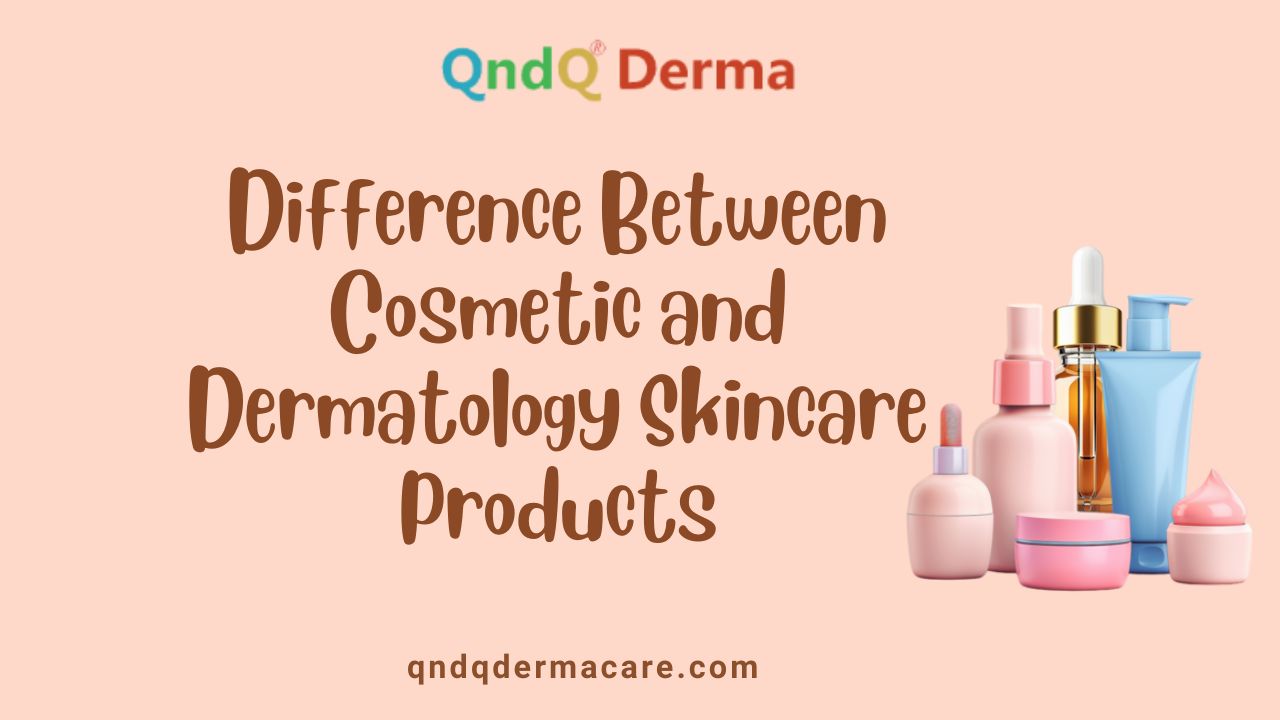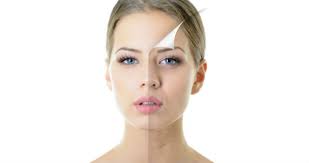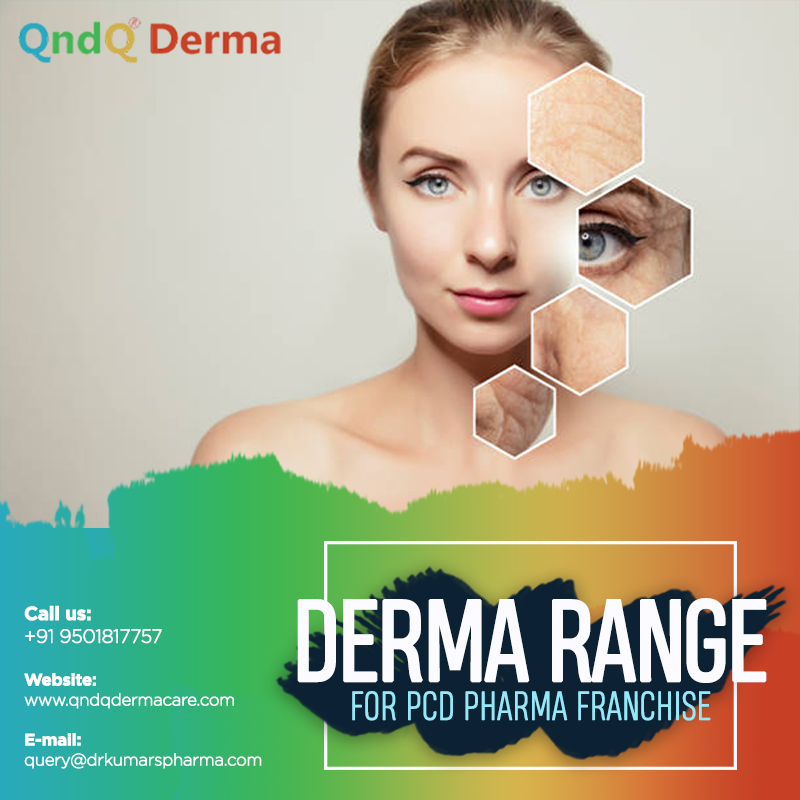+91 9816857058
query@drkumarspharma.com

Difference Between Cosmetic and Dermatology Skincare Products- India’s skincare industry is evolving at a rapid pace, with a market size of $8.4 billion in 2024, projected to reach approximately $17.1 billion by 2033. The Industry offers a wide range of products, ranging from cosmetics to dermatology, promising flawless and healthy skin. The skincare enthusiasts are revolutionizing the landscape of beauty and personal care. From everyday cream to advanced treatments prescribed by dermatologists, the variety of options can be confusing at times. But what exactly sets Cosmetic and Dermatology Skincare Products apart?
QndQ Derma delivers a thorough overview of the topic, Difference Between Cosmetic and Dermatology Skincare Products, ensuring you can make informed choices for your skincare routine. Being aware of these differences ensures you select the right skincare products, address your concerns, and enhance your skin’s overall health. While Cosmetic skincare products focus on improving the appearance of the skin, Dermatology works on deeper concerns with medical precision.
Understanding Cosmetic Skincare Products: What They Are and How They Work?
Cosmetic Skincare products are those formulations that are designed to enhance the look and appearance of the skin; they don’t have any medical significance. Generally, these products are intended for cosmetic purposes, focusing on improving texture, hydration, and radiance rather than treating medical conditions. These skincare products are available over the counter and do not need any medical prescriptions.
Cosmetic products are formulated for a general skincare routine, which makes the skin look brighter, smoother, and more youthful, but their results are often temporary. Cosmetic Skincare products include cleansers, face washes, general moisturizers, lotions, serums, anti-aging cream, and much more. These products contain lower concentrations of active ingredients, may contain non-physiological additives, such as perfumes and colorants, to enhance the product's feel and smell, hence providing temporary effects.
A Brief Guide to Dermatology Skincare Products
Dermatology Skincare Products are specialized formulations that are developed to address specific skin concerns under the guidance of dermatologists. These derma products are usually produced in consultation with da dermatologist. It works beyond enhancing the appearance of the skin, but acts on the root causes of skin problems, reducing and even eliminating these dysfunctions. Unlike Cosmetic Products, dermatology products often target underlying issues such as acne, eczema, rosacea, hyperpigmentation, or sensitive skin.
Dermatology skincare products are form through extensive research, focusing on skin health and skin improvements. Their manufacturing involves rigorous testing for safety, stability, and effectiveness, backed by scientific studies. Their primary goal is restoring and maintaining skin health. Ingredients involved in these products are free from non-physiological emulsifiers, preservatives, mineral oils, dyes, and additives, which could have negative impacts on skin.
Discover the List of Dermatology Skincare Products Offered by QndQ Derma
QndQ Derma is among the renowned names in the realm of Dermatology Landscape. They are known for delivering a wide array of Dermatology Skincare Products for franchise opportunities. Their unwavering commitment to excellence and innovation sets them apart from the rest. With a strong focus on quality and assurance, they have become a preferred choice among consumers. The products are designed under strict quality control, with state-of-the-art manufacturing facilities, backed by a team of professionals and experts.
A List of Dermatology Skincare Products Offered by QndQ Derma is mentioned as follows:
Acnehold (Anti Acne Face Wash)
Alum, Allantoin, Tree Tea Oil, Sodium Lactate, and Vitamin A Acetate
Luliconazole 1% Lotion
Vitamin C 20%, Hyaluronic acid, Glutathione, Grape Extract, Vitamin E Acetate
Clobetasole Propionate 0.05% & Salicylic Acid 6% Ointment
Clobetasol IP, Salicylic Acid & Urea Lactic Acid Ointment
A Comparison Highlighting Differences Between Cosmetic and Dermatology Skincare Products
| Feature | Cosmetic Skincare Products | Dermatology Skincare Products |
|---|---|---|
| Purpose | Enhance appearance (smoothness, brightness, fragrance) | Treat or manage skin conditions (acne, eczema, psoriasis) |
| Regulation | Less strict; generally for beautification | Highly regulated; often require clinical testing and approval |
| Ingredients | Focus on moisturizers, fragrances, and colorants | Active pharmaceutical ingredients (retinoids, corticosteroids, antibiotics) |
| Efficacy | Cosmetic effect, temporary improvement | Clinically proven therapeutic effect |
| Usage | For the general population, daily use | Often prescribed or recommended by dermatologists |
| Safety | Generally safe for normal skin; mild side effects | Safety monitored; potential side effects due to stronger actives |
| Cost | Usually affordable | It can be expensive due to the active ingredients and testing |
| Examples | Moisturizers, toners, serums, face masks | Prescription creams, medicated shampoos, and acne treatments |
Conclusion
While both cosmetic and dermatological skincare products aim to improve the health and appearance of the skin, they differ in purpose, formulation, and effectiveness. Understanding the differences between them allows individuals to make informed choices based on their skin’s needs, hence improving skin health. QndQ Derma is a leading Manufacturer and supplier of Dermatology Skincare Products. Associate with QndQ Derma for Derma PCD Franchise Business Opportunities in Pan India.





